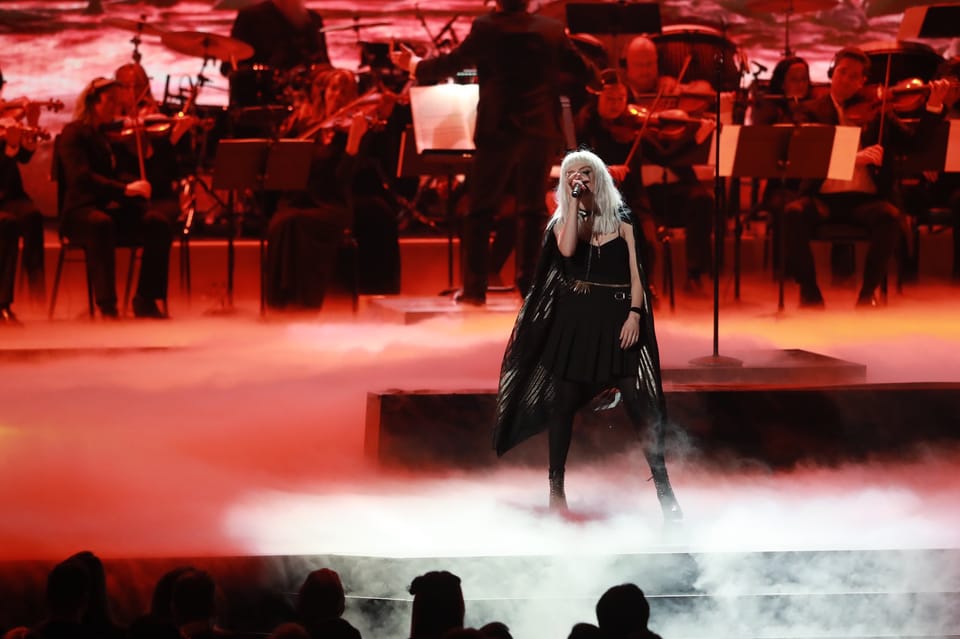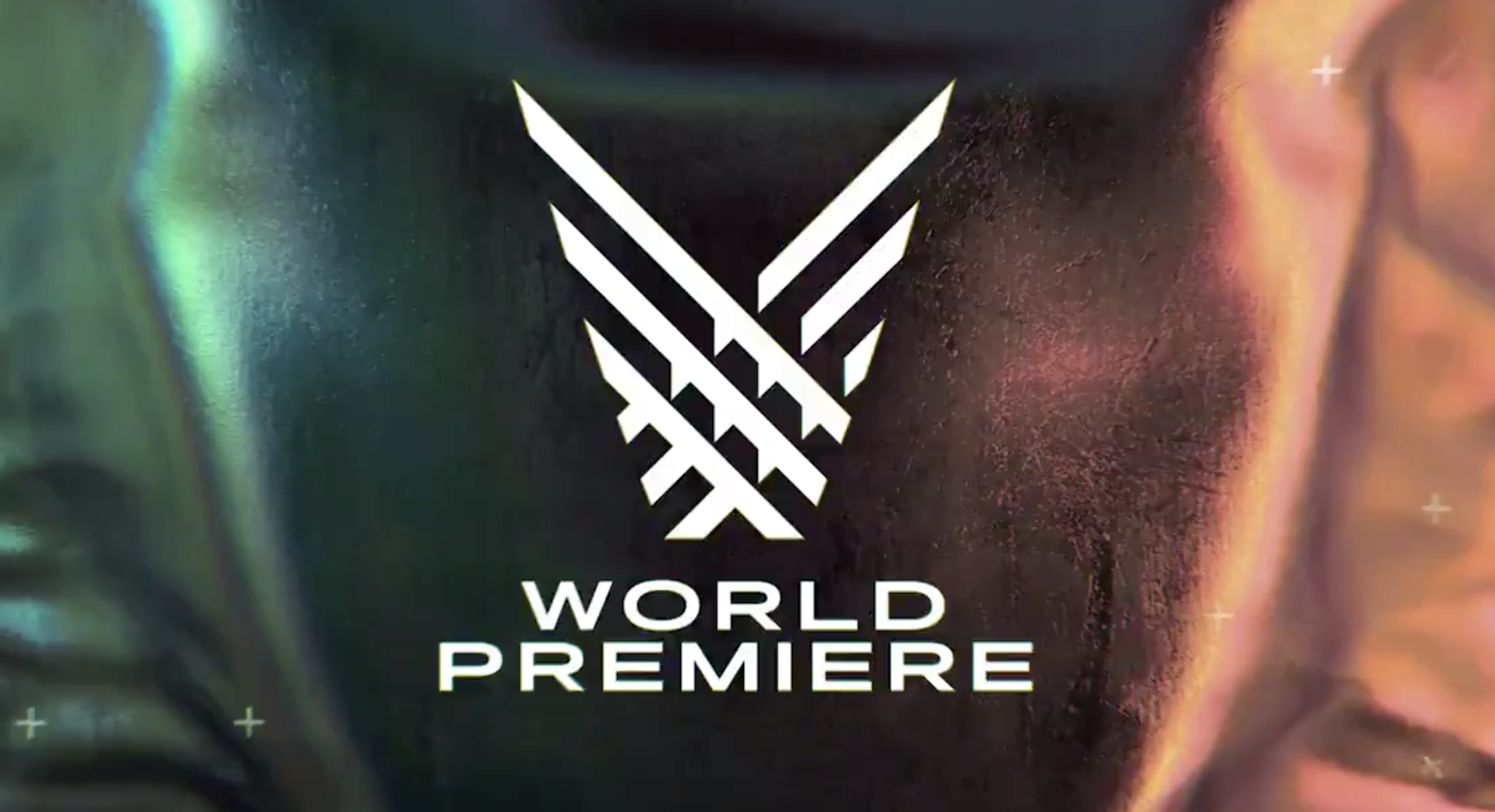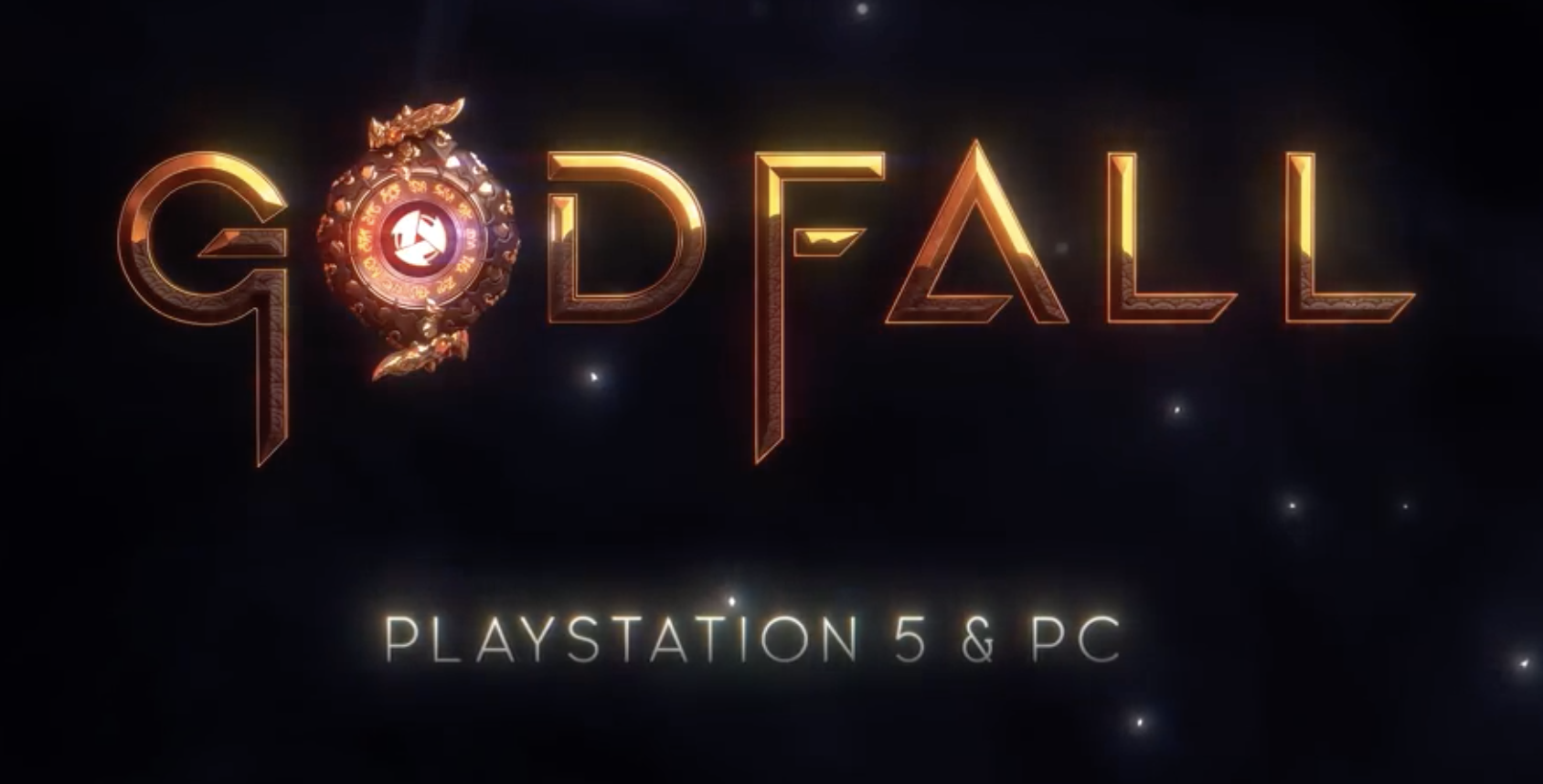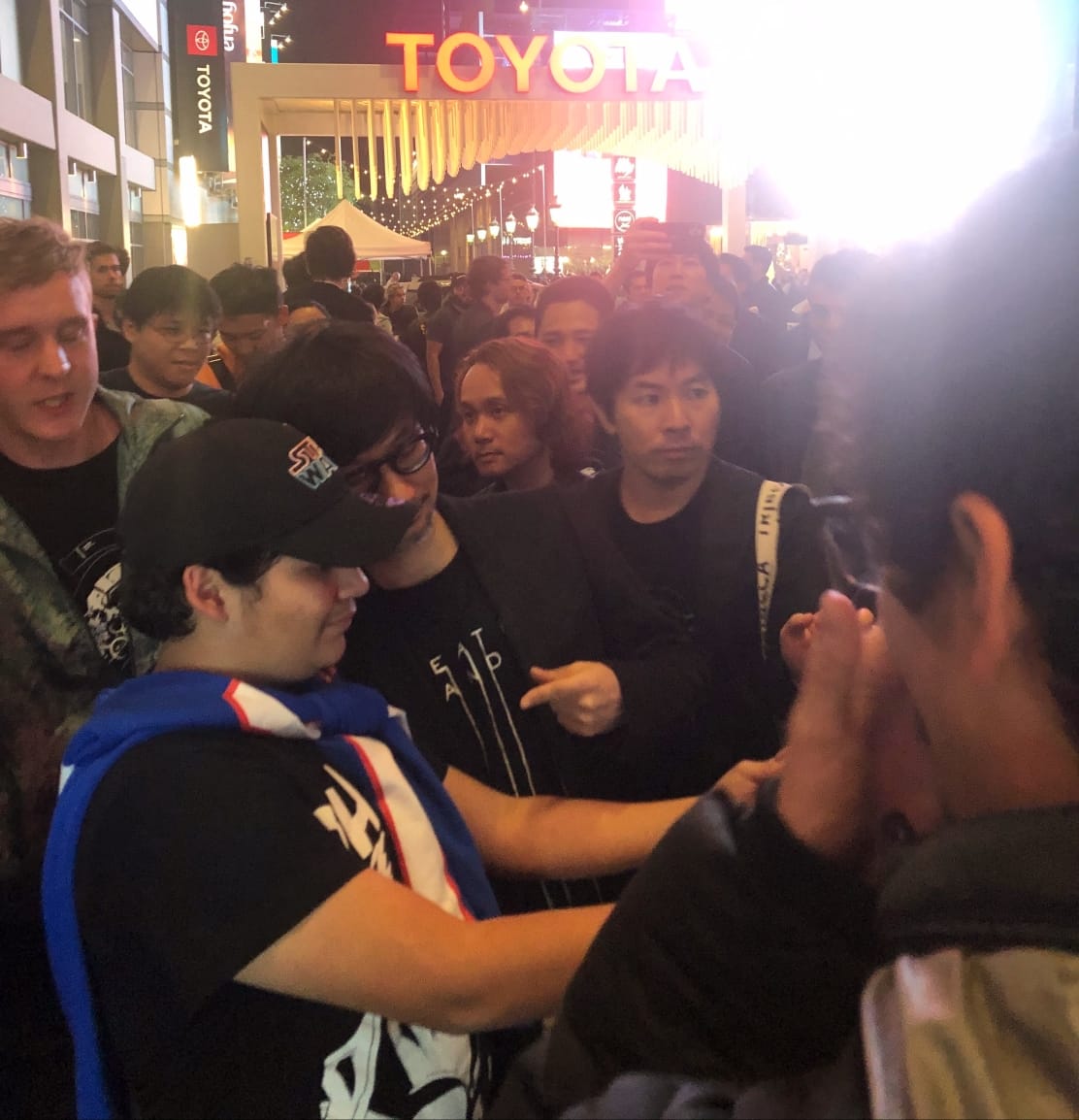Awarding The Game Awards: 2019 edition

(Originally published on Jan. 6, 2020 on my old Wordpress blog.)
December tends to be a slow time for the video game industry. The rush of big triple-A releases is usually over by Thanksgiving, and media outlets around the world start reflecting back on the year that was, publishing all sorts of year-end stories and personal game-of-the-year picks.
Enter The Game Awards.
First started in 2014 by longtime journalist Geoff Keighley, the Game Awards is the biggest and most popular gaming awards show – compared to the GDC Awards in SF or the more buttoned-up D.I.C.E. Awards in Las Vegas – in the world. In 2018, over 30 million people watched the live broadcast on digital streaming services like Twitch and Mixer. This year, the TGAs were even shown at Cinemark movie theaters.
And while I've watched each iteration of the show since its inception, this was the first time I was able to attend in person thanks to an invite from a colleague, Dean. I wasn't sure what to expect. Would Keighley's famous "world premiere" trailers be just as exciting to watch in the room? Is the audience just filled with screaming fanboys the whole time? Would I look out of place wearing sneakers and jeans?
I quickly found out the answers were yes, kind of, and no (the industry tends to dress pretty casual, even at the TGAs). Dean and I sat toward the back of the Microsoft Theater on the upper-middle level, and while we had a good viewing angle of the stage, we were still far enough away that the presenters and musicians looked like tiny ants. The big screens near the stage helped mitigate this a bit, but for some reason, they rarely depicted the people who were presenting the awards.
Our section was surprisingly empty. It filled in a little as the awards went on, but Dean, who was also at the TGAs last year, said the theatre wasn't as full as it was in 2018. If anything, being there felt like being at a really expensive – and slightly more packed – E3 press conference.

The best part about being there live was watching the musical acts. This year, that lineup included CHVRCHES, Grimes (debuting a song from Cyberpunk 2077), and Green Day. The Game Awards Orchestra was fantastic as well, performing a lovely medley of songs from this year's biggest games.
Even though the show was long (clocking in around 3 hours), I found it a bit hard to keep up with all the awards being doled out. Part of it was just the sheer sensory overload of seeing all those new trailers on the screens, sometimes having two or three of them in a row. But the audience seemed to dig it, and cheered even louder than usual whenever a Nintendo Switch logo popped up.
Overall, I'd love to attend the TGAs again, just to see how it keeps growing and adapting to big changes within the industry. But for this post, I wanted to share some of my own highlights and takeaways from the show. And what better way to do that than by handing out my own not-so-prestigious awards!
Biggest impact: Sony and Microsoft prepare for battle
The Game Awards started off with a bang with the reveal of the next Xbox (previously referred to by its codename Project Scarlett). Now known as Xbox Series X and slated to launch next holiday, the new Microsoft console is a sleek black box with a huge fan up top, making it look a lot like a small PC tower.
I don't think anyone expected Microsoft to talk about the name or the look of its next-gen system until at least early 2020 (we already knew from E3 that it'd be launching later that year), so this "world premiere" came as a huge surprise. The theater exploded in applause when the Xbox Series X was eventually shown after a series of cinematic teasers, including references to Forza and Halo.
To top it off, Microsoft also showed a new game that'd be coming to the XSX thanks to developer Ninja Theory, which it acquired back in 2018. That turned out to be Senua's Saga: Hellblade II, the sequel to the popular action-adventure game that originally debuted on PlayStation 4.
Not to be outdone, Sony also had something up its sleeve for the TGAs. A trailer for Counterplay Games' Godfall – described in a press release as a melee-focused "looter-slasher" – appeared shortly after the Xbox announcement. It looked nice enough, with burly characters in resplendent armor running through a ruined castle.
But the real kicker came at the end of the video, when it was revealed that Godfall would be coming to PC and PlayStation 5, making it the first publicly confirmed game for Sony's upcoming console.

Getting both console makers onboard like this is a huge feat, and I have no idea how Keighley pulled it off. The 2019 Game Awards will now go down in gaming history as the first place where millions of people got a glimpse of the games and experiences that both the Xbox Series X and PS5 will offer.
Usually, these types of reveals are saved for standalone media events or press briefings at trade shows. But with the TGAs' impressive worldwide viewership numbers, which only seem to grow every year, it makes sense for Microsoft and Sony to try and make a big splash like this, if only to remind people that these consoles are coming soon.
I wouldn't be surprised if these relationships continue into the 2020 show, as that'd give both companies a chance to further dive into the lineup of their new systems.
Best skit: Muppets x Untitled Goose Game
By far the best presenters of the night were Dr. Bunsen Honeydew and Beaker, the dysfunctional science duo from The Muppets. According to on-air comments from Keighley, it was always a dream of his to collaborate with The Muppets Studio. But it seems like it worked out better than even he could have imagined.
Toward the latter half of the night, Bunsen and Beaker were rolled out on stage – with a hilariously tall work desk to hide the puppeteers – to present the Games for Impact award (which ended up going to Nomada Studio's Gris). The skit involved Beaker becoming the star of his own game ... or so he thought. It was a brilliant moment that's hard to do justice in writing, so I highly recommend just watching the video yourself.
Keighley later clarified in a short Twitter thread that mashing Untitled Goose Game with The Muppets was his idea, and Australian developer House House agreed to do it despite being hard at work on the console versions of the game. I just hope Muppets and/or Beaker DLC somehow becomes a real thing.
Oddest realization: Is Fortnite the real metaverse?
Fortnite's popularity is in no danger of waning, and that was evident when it received the Best Ongoing Game award for the second year in a row. But that wasn't the interesting part for me – when Epic Games creative director Donald Mustard went up on stage to accept the award, he mentioned something I hadn't considered before.
Toward the end of his speech, he said, "We're finding more and more that our goal is to try to create a metaverse. To create a place where all IP can live together, where all kinds of experiences can happen, where we can create a thing that's a totally new type of emergent media."
The idea that the most popular game in the world can also become the fabled metaverse – the shared virtual space envisioned in Snow Crash and other sci-fi works – sounds silly at first. But Mustard has a point. Over the last two years, Fortnite has had limited-time content from Avengers: Endgame, John Wick: Chapter 3, and most recently, Star Wars: The Rise of Skywalker. And companies like Disney and Marvel continue to partner with Epic because they know millions of people play the game – how could any marketing team possibly pass up that kind of opportunity?
But Fortnite isn't quite at the metaverse level yet. So far, it's been more of a vehicle for pop culture promotion rather than a true virtual world. While a lot of kids and hardcore players already use Fortnite as a way to hang out with friends, the same could be said for any multiplayer game with a thriving community (like Destiny 2 or Final Fantasy XIV).
Mustard's last point about emergent media didn't take long to manifest itself, however. Less than two days after the TGAs, Fortnite held a live Star Wars event in the game with Keighley, director J.J. Abrams, and comedian Ben Schwartz. It was a strange experience: Fortnite turned off the normal combat rules in the game so everyone could safely gather around the Risky Reels area of the map to watch the showcase.
After a fun spectacle involving Star Destroyers and TIE Fighters chasing down the Millennium Falcon, Keighley's avatar appeared on stage and he proceeded to interview Abrams (complete with his own lookalike avatar) in a talk show-style format. The segment didn't last long, and the clip from the film wasn't all that exciting, but it does hint at the kind of interactive experiences that Mustard was talking about.
I’m so grateful for your support and awesome ideas that helped make this a reality. To me, this was one of the first and most important steps toward ‘the new medium’.
— Donald Mustard (@DonaldMustard) December 14, 2019
Most heartfelt speech: Reggie Fils-Aime
Few gaming executives have had a following as deep and passionate as Reggie "My body is ready" Fils-Aime's. The former president of Nintendo of America retired this past April, but that didn't stop Keighley from tapping him as a Game Awards presenter.
Fully embracing his status as a famous gaming meme, Fils-Aime walked out on stage with sunglasses while Young the Giant's "My Body" played in the background. But afterward he gave a very thoughtful speech about his time in the industry, touching on his experiences at Nintendo and his friendship with the late Satoru Iwata, and emphasizing how important indie developers are to this industry.
It was a quiet moment of reflection from Fils-Aime, a segment that also doubled as a brief respite from the constant blitz of awards and advertisements. I hope he comes back again next year.
Biggest surprise: Sekiro winning GOTY
Sometimes it can be easy to predict what game might take home the sought-after Game of the Year award. In 2018, it was a heavyweight match between Sony Santa Monica's God of War reboot and Rockstar's Red Dead Redemption 2 (Sony won that battle), and the year before that, no one else could come close to toppling The Legend of Zelda: Breath of the Wild.
But 2019 was a strange, experimental year for games. Not in a bad way, though. There were so many unique experiences to find on all platforms, and what made this year stand out was that none of these games clearly emerged as the big front-runner in GOTY discussions.
The Game Awards' 2019 GOTY nominees – The Outer Worlds, Super Smash Bros. Ultimate, Resident Evil 2, Sekiro: Shadows Die Twice, Control, and Death Stranding – reflected that notion. While some people justifiably groused about certain games not being on the list, it's still the show's most diverse spread of nominees in years. A case could be made for all of these games depending on your tastes, and that's what made the eventual winner so fascinating.
When actors Vin Diesel – let me take a moment here to say, WTF? – and Michelle Rodriguez announced From Software's Sekiro was this year's GOTY, I couldn't help but yell out "Holy crap!"
The creative mind behind Sekiro is Hidetaka Miyazaki, a game designer best known for creating the challenging Dark Souls franchise, as well as Bloodborne and Demon Souls. I haven't played Sekiro yet, but my understanding is that it's very much a spiritual successor to those games. Hence my comment. I figured Sekiro was a dark horse nominee at best, the kind of game that people who love it really love it, but that it'd be something the general audience wouldn't necessarily care about.
Judging from my social feeds during the TGAs, I wasn't the only one who was shocked. Even Miyazaki sounded surprised, saying he was "very moved" when he went up to accept the award.
There's always been a certain amount of fervor and popularity around his games, so I'm curious what kind of effect, if any, this victory will have going forward. It's one thing for a single media outlet or content creator to say Sekiro is their personal game of the year. But to have it on a platform as big as The Game Awards must feel validating for Miyazaki and his team, and for all of their ardent supporters.
Moment of zen: The Kojima Flash Mob

After the TGAs were over, my colleague and I hung out near the entrance of the Microsoft Theater to talk with devs, PR reps, and other folks from the industry. At one point, we noticed a throng of people rapidly approaching us – if we didn't move aside, I'm pretty sure we would've been trampled.
When we looked closer, we saw that Metal Gear Solid and Death Stranding creator Hideo Kojima was at the center of that human vortex. He was trying to walk to the other side of the L.A. Live complex, but he'd stop every couple of seconds to shake hands or take selfies with fans. Someone from his team (the guy to the right of him in the picture) kept trying to move him along lest he be stuck taking pictures all night.
It was a funny reminder of the celebrity-like status of certain developers, which can be easy to forget when you're on the media side of things. God of War director Cory Barlog was also hanging outside the theatre, for instance. And while he had some people around him, his crowd wasn't nearly as big or excitable as Kojima's.
In a way, this bizarre post-show moment perfectly captured what The Game Awards are about: a time to celebrate the year's biggest games and creators – and if you're lucky enough, to take selfies with said creators if they happen to walk by.

Member discussion